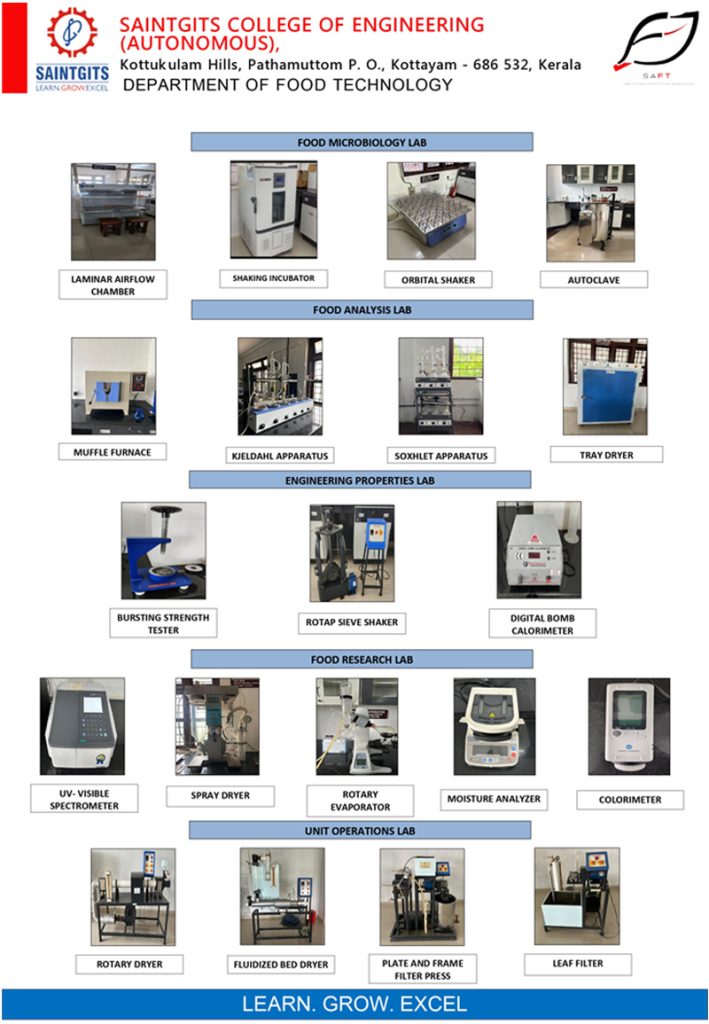
Food Microbiology Lab
In order to control food safety and quality from primary production to consumption, solid knowledge of Food Microbiology is necessary. In Food Microbiology both positive (fermentation) and negative aspects (spoilage, disease) of micro-organisms are studied.
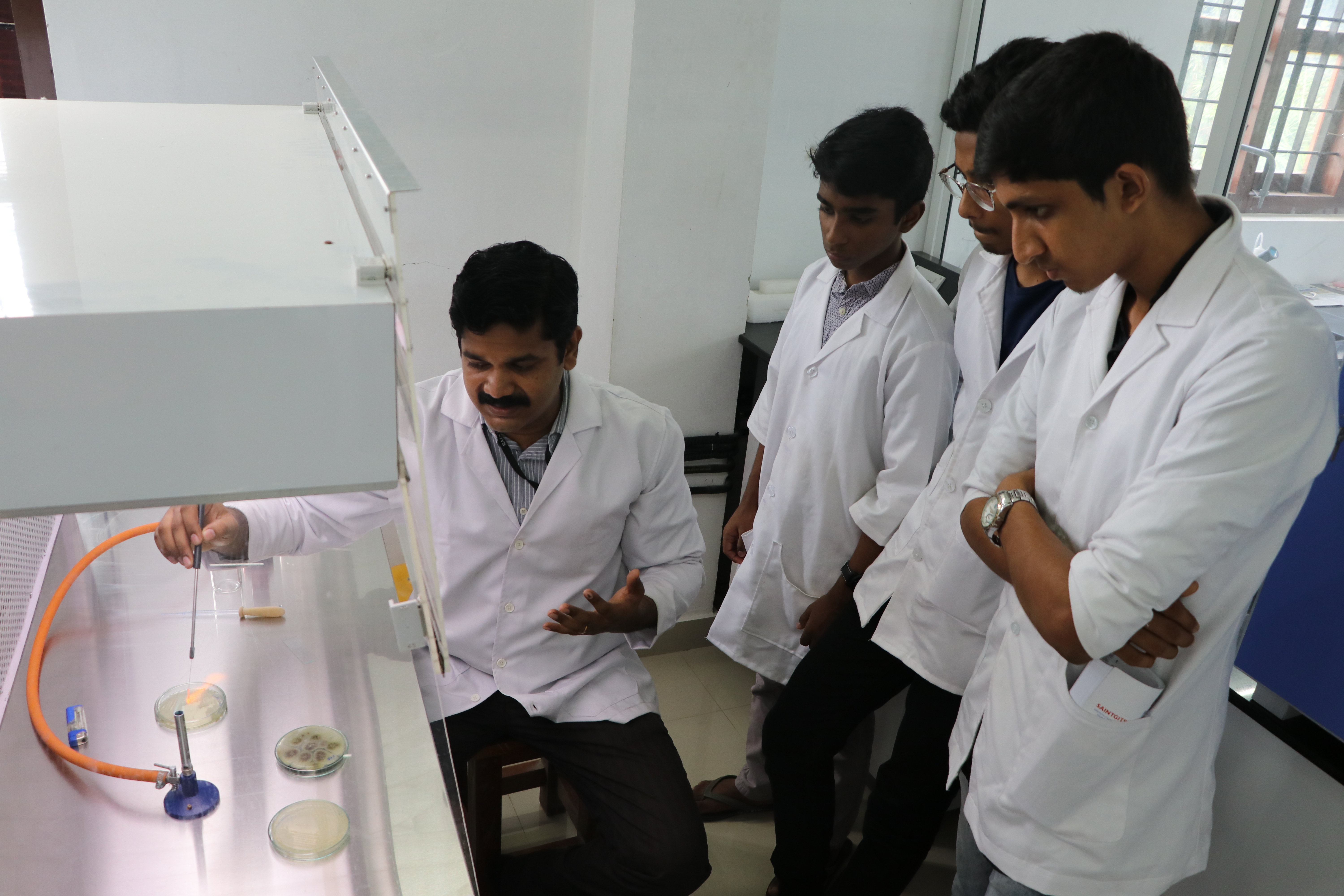
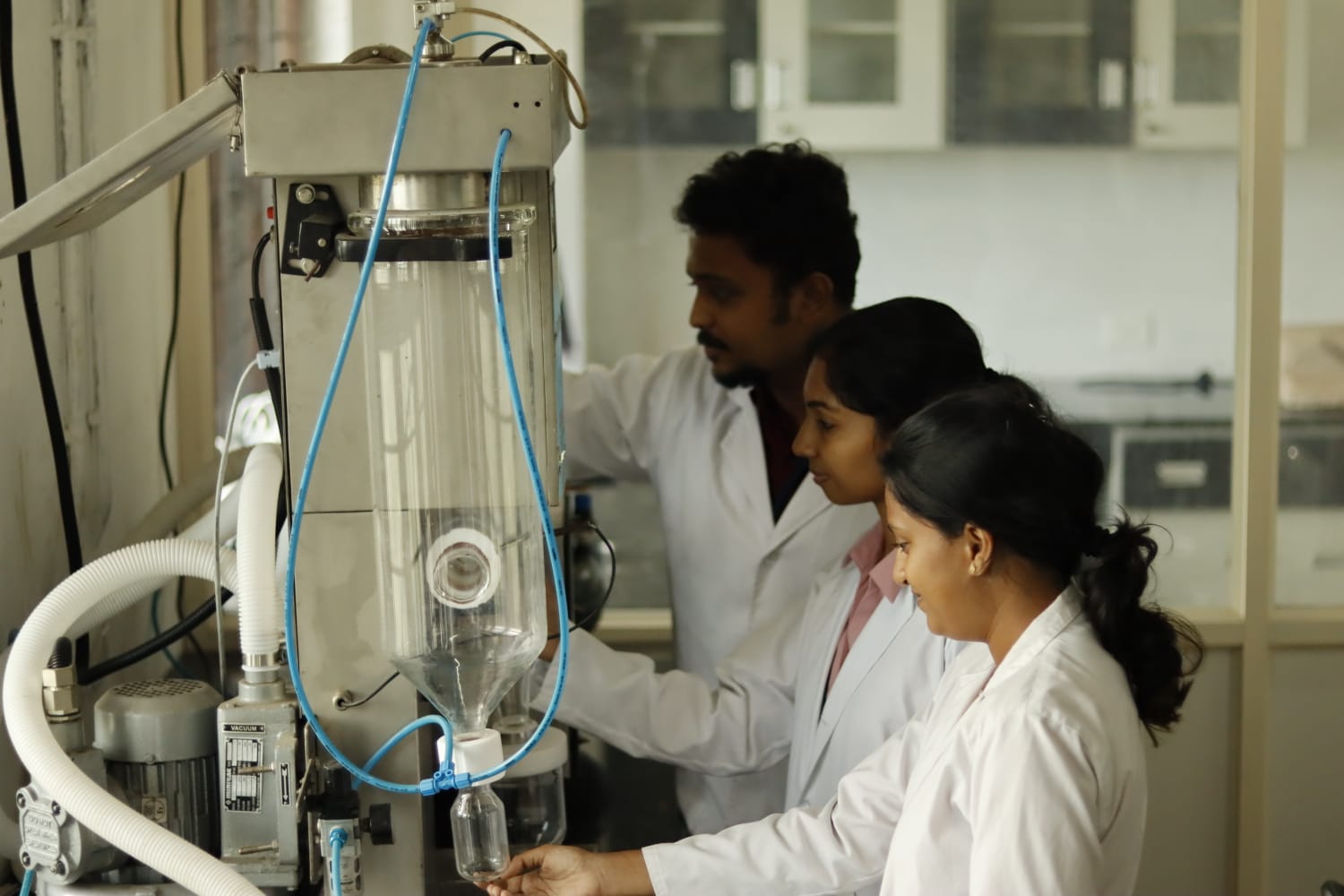
Food Chemistry Lab
Laboratory exercises dealing with the chemical properties of food components and changes they undergo in processing and storage. Relationships between the chemical composition of foods and functional, nutritional, and sensory properties are stressed. Laboratory techniques commonly used in food research are introduced.
Engineering Properties Lab
The objective of the strength of materials lab is to demonstrate the basic principles in the area of strength and mechanics of materials and structural analysis to the undergraduate students through a series of experiments. In this lab the experiments are performed to measure the properties of the materials such as impact strength, tensile strength, compressive strength, hardness, ductility etc.
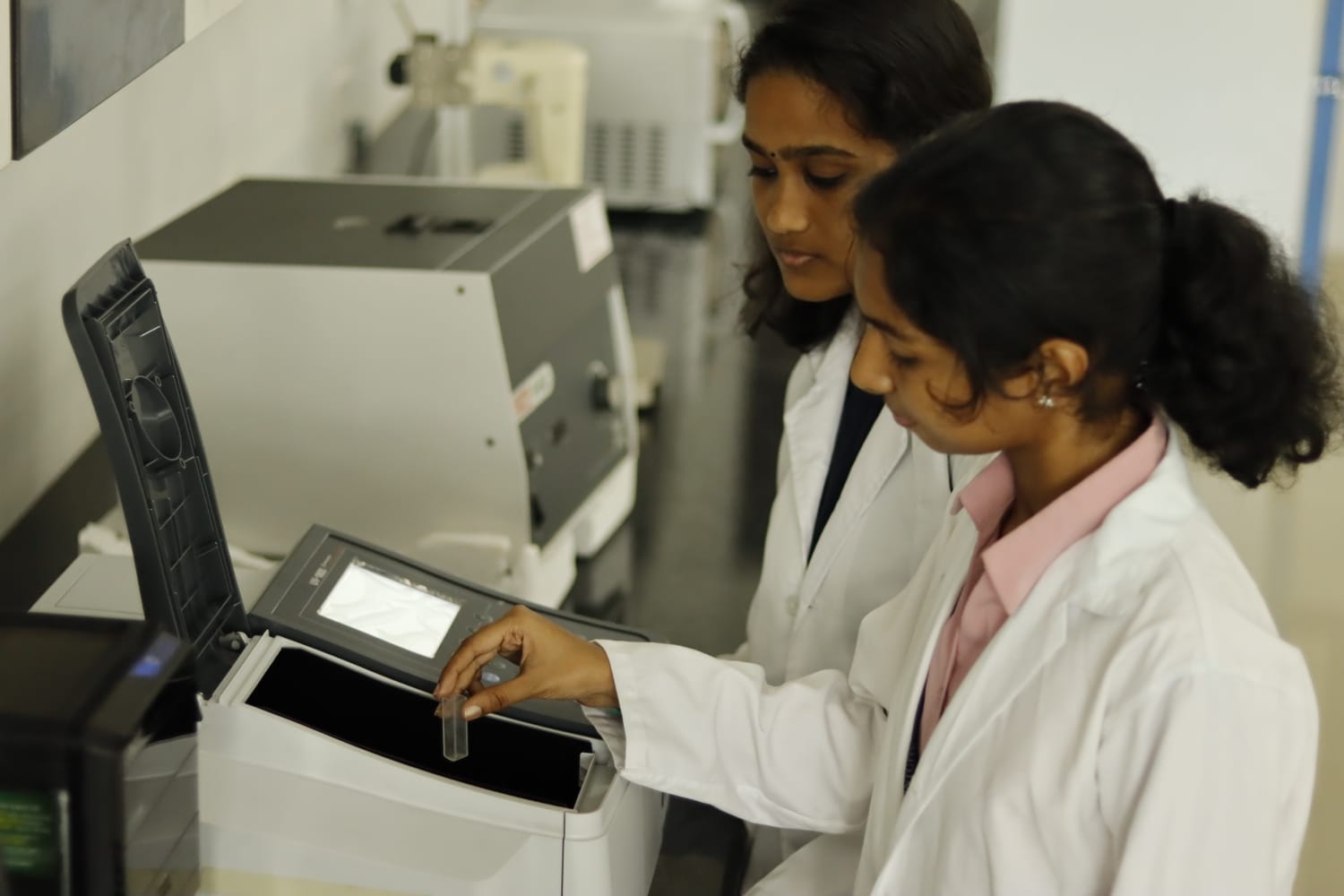
Food Analysis Lab
The significance of food analysis lab is to provide information about chemical composition, processing, quality control (QC) and contamination of foodstuffs. It provides analytical data on the quality of food product or production process. The lab is well equipped to perform chemical testing or analytical procedures, quantitative research methods, biological research techniques, quality assurance techniques related to food. Estimation of essential elements in food, amino acid, vitamins, moisture content analysis, quality analysis of milk, oils and fat analysis, etc. are some of the experiments performed.
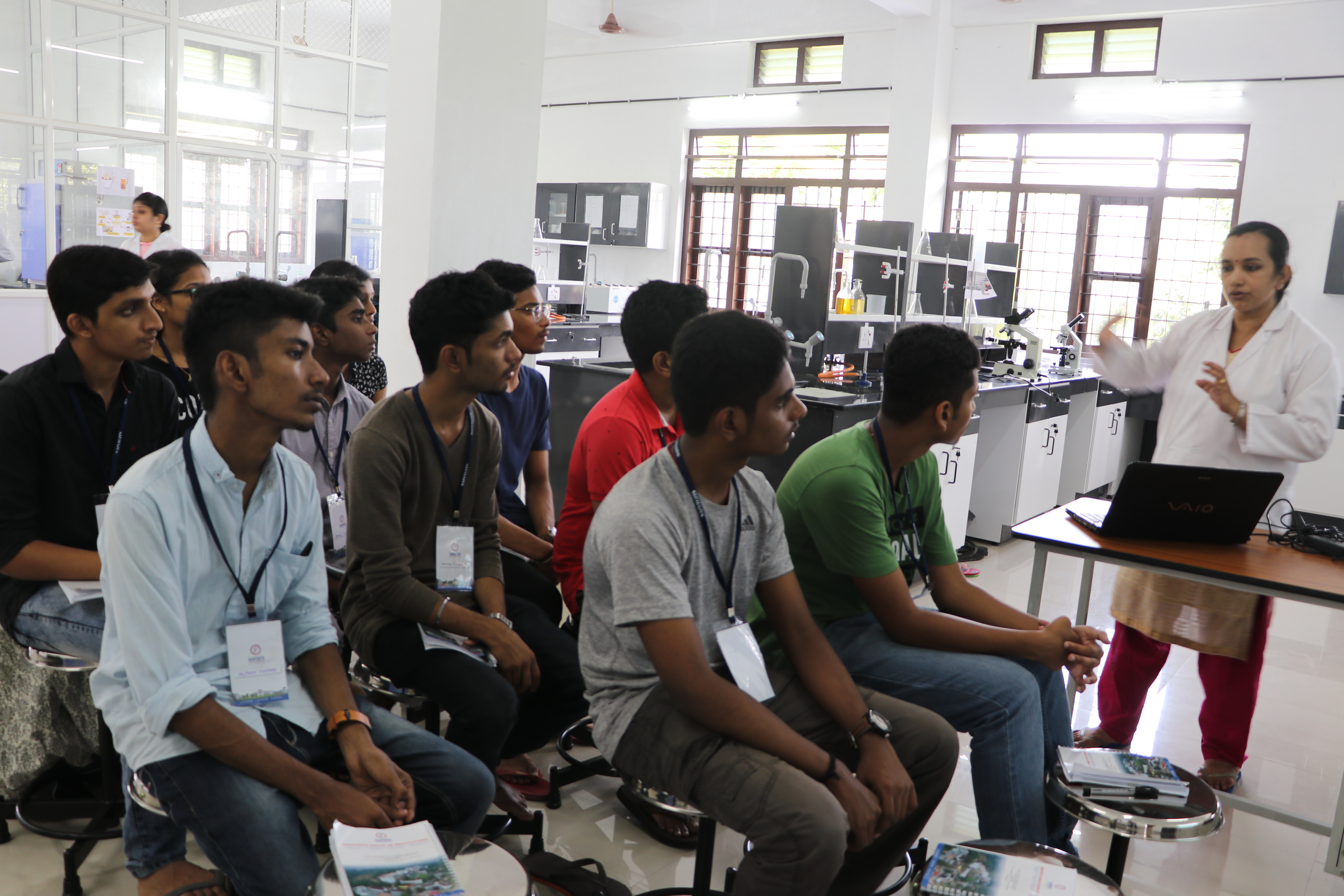
Food Processing and Preservation Lab
The goal of food processing and preservation lab is to provide a balance between fundamental chemistry and engineering principles and applicable food processing and preservation technologies. Laboratory experiments include fermentation, drying, pickling, curing, refrigeration, and the use preservatives.
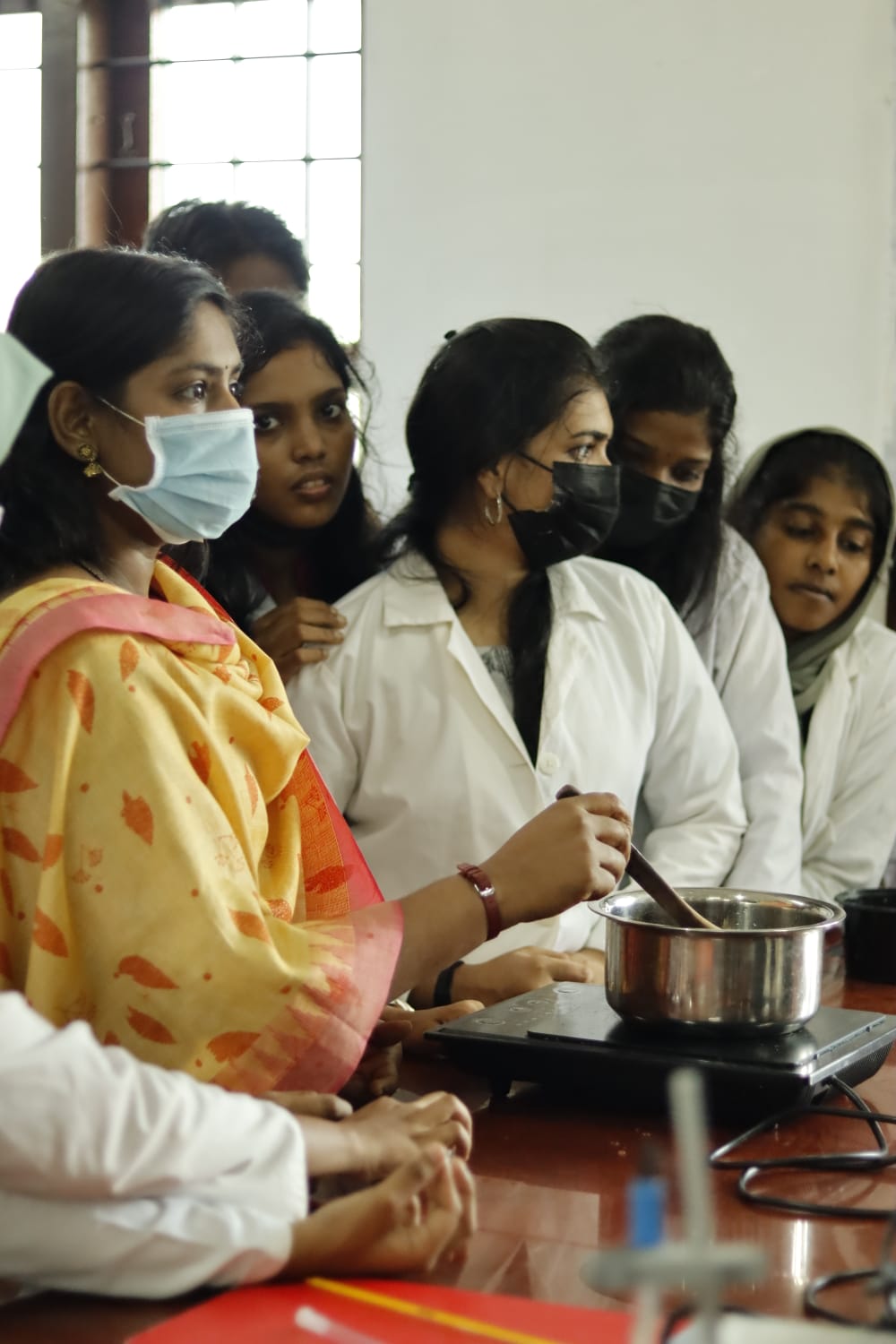
Unit Operations Lab
Unit operations are basic operations that are characterized by the changes in the physical properties and can be utilized for the easiness of any processing industries. The application of heat can be consider as a profound example of unit operation that could be used for a variety of food processes such as baking, steaming, tempering, frying, etc. The complicated engineering aspects of food processing can be made simpler and understandable by inculcating the basis of unit operations. The application of the principles of unit operations with food science made pave to the flourishment of food technology and processing sector which has been witnessed in the past decades.
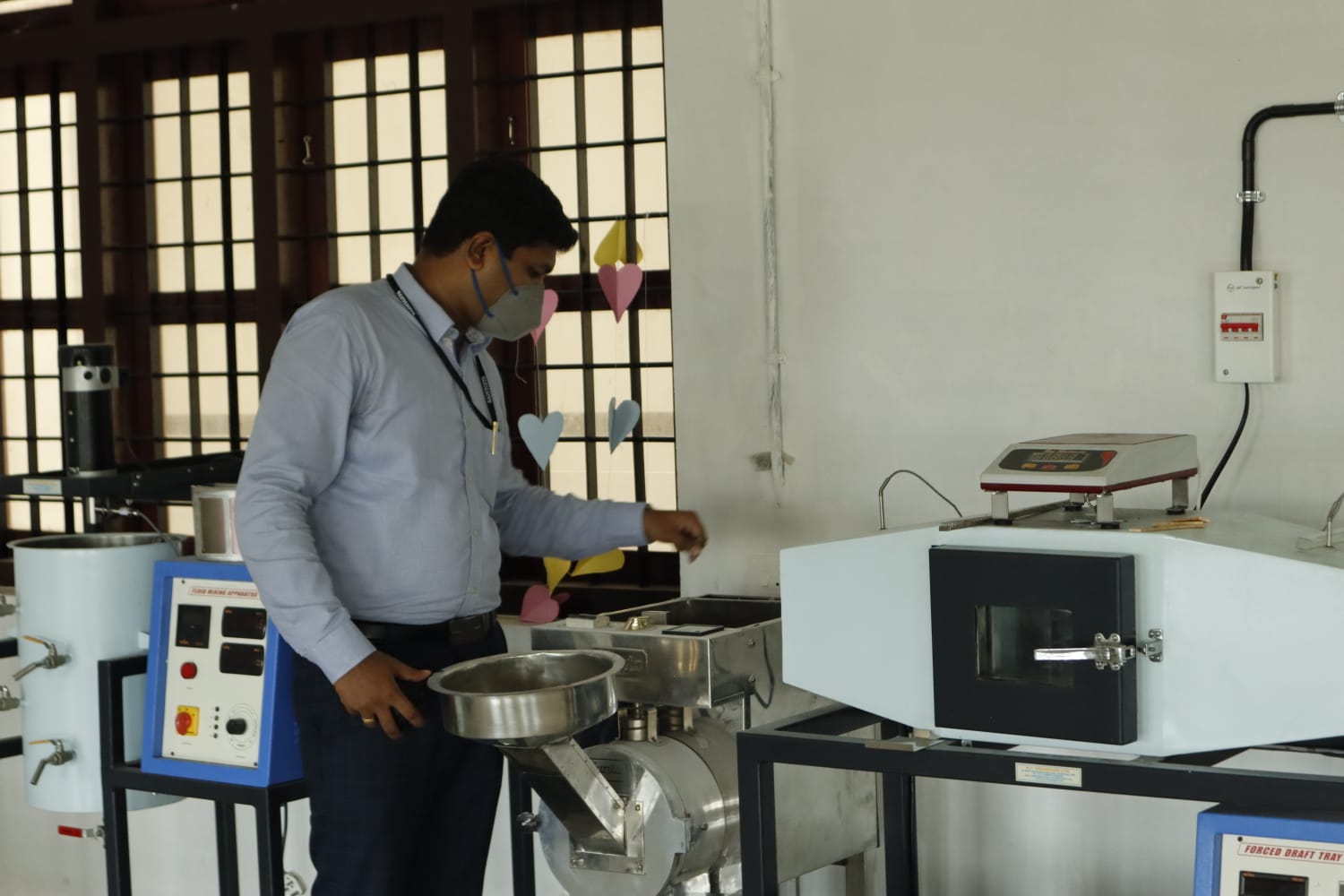
Project and Research Lab
The additional facilities provided aim to enhance the learning experience within the laboratory environment. These facilities, including UV-Visible spectrophotometer, vibroviscometer, color reader, spray drier, and moisture analyzer, support advanced learning, project-based activities, and research enthusiasm among students. Moreover, they cater to societal needs by offering consultancy services and fostering an accredited lab environment for providing reliable reports to food businesses. Additionally, facilities like MATLAB, SPSS, and STATEASE software enable the analysis, modeling, and simulation of experimental outcomes, further enriching the learning process.












